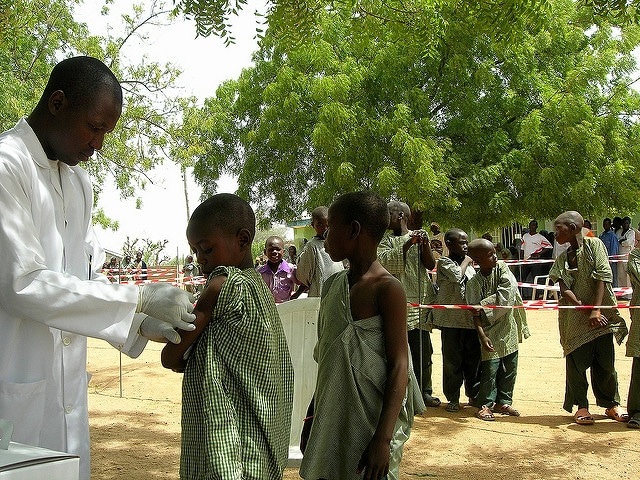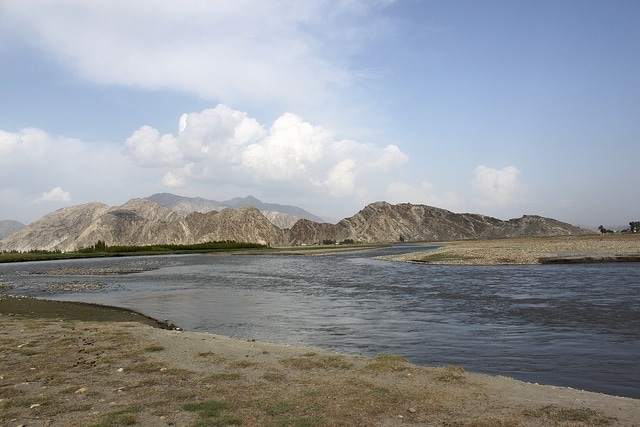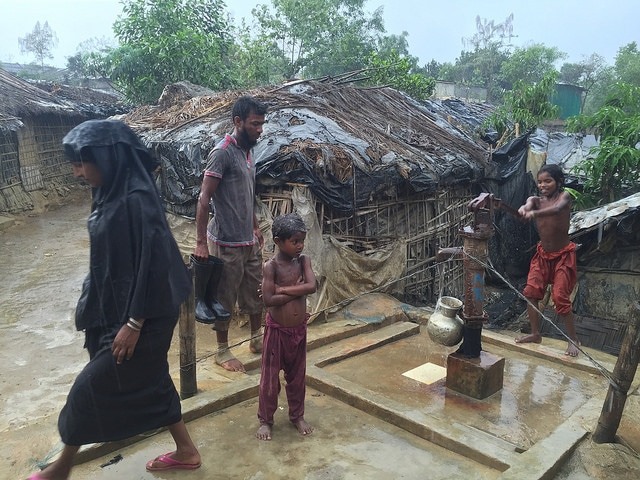Welcome to our roundup of news and current events related to ethics and international affairs! Here’s what we’ve been reading this month:
 Photo Credit: Frédéric Bisson via Flickr.
Photo Credit: Frédéric Bisson via Flickr.
Washington Post: France’s presidential election may determine the future of the European Union
Though French presidential candidate Marine Le Pen has gained attention for her populist politics, she is not the only candidate to eschew multilateralism; only one of the five French presidential candidates supports staying in the European Union outright. Should France withdraw from the EU, the institution would lose much of its funding and influence, putting its future in jeopardy.
Read more on democracy and the future of the EU in Ethics & International Affairs:
Rescuing Democracy in the Age of the Internet
Brexit and the revenge of the demos
Is There an “International Community”?
 Photo credit: Rosy via Flickr.
Photo credit: Rosy via Flickr.
The Guardian: Opening of UN files on Holocaust will 'rewrite chapters of history'
For the first time, the archive of the UN war crimes commission will be made public online through the Wiener Library. The files provide insight into the UN’s early attempts to prosecute crimes against humanity and include demands for justice from invaded countries such as Poland and China, as well as detailed evidence of crimes committed at concentration camps such as Treblinka and Auschwitz.
Read more on justice and mass atrocities in Ethics & International Affairs:
Choosing Among Alternative Responses to Mass Atrocity: Between the Individual and the Collectivity
Who Are Atrocity’s “Real” Perpetrators, Who Its “True” Victims and Beneficiaries?
 Photo credit: Teseum via Flickr.
Photo credit: Teseum via Flickr.
Newsweek: Nigeria Struggles to Contain Worst Meningitis Outbreak in Two Decades
The death toll from a recent outbreak of meningitis has reached 745 according to the CDC. The outbreak has been particularly devastating due to a shortage of vaccines for the particular strain. The Nigerian government hopes to mitigate the disease’s spread through the creation of a multi-organization immunization team and education campaigns.
Read more on global health justice in Ethics & International Affairs:
Common Health Policy Interests and the Shaping of Global Pharmaceutical Policies
Global Justice and the Social Determinants of Health
More Money, Less Cure: Why Global Health Assistance Needs Restructuring
 Photo credit: Johannes Richtervia Flickr.
Photo credit: Johannes Richtervia Flickr.
Bloomberg: Land Reform ‘Key’ for South Africa Economic Stability, ANC Says
Amidst a severe economic decline, South Africa has indicated it is contemplating land confiscation from white farmers in an attempt at restitution for seizures under colonialism. While the Restitution of Land Rights Amendment Bill, which became law in 2014, grants the victims of forced displacement a legal means to regain control of their property, private property laws outlined in the constitution have previously made forced seizures difficult. President Zuma is contemplating the relaxation of these private property protections, triggering debates on transitional justice.
Read more on transitional justice in Ethics & International Affairs:
Apology, Forgiveness, and Moral Repair
Expanding the Boundaries of Transitional Justice
 Photo credit: Todd Huffman via Flickr.
Photo credit: Todd Huffman via Flickr.
Boston Globe: U.S. drops ‘mother of all bombs’ on ISIS target in Afghanistan
The United States has dropped the largest conventional bomb in its arsenal on a target in Afghanistan. The munition is nicknamed the “mother of all bombs,” and the April 13th strike against an ISIS tunnel complex marks its first use. This strike, along with the recent Tomahawk missile strike on Syria, has sparked debates about conduct in war and the ethics of using force short of war.
Read more on U.S. foreign policy and ethical conduct in war in Ethics & International Affairs:
Tomahawk Foreign Policy: Trump and The Use of Force Short of War
Syria and the Just Use of Force Short of War
ISIS and the Ethics of Delegation in Fighting Terrorism
 Photo credit: EU/ECHO/Pierre Prakash via Flickr.
Photo credit: EU/ECHO/Pierre Prakash via Flickr.
The Guardian: Plan to move Rohingya to remote island prompts fears of human catastrophe
The Bangladeshi government is considering proposals to relocate Rohingya refugees to a flood-prone island that some consider uninhabitable. Fear of forced relocation to the island is causing some refugees to consider traveling back to Myanmar, despite the risk of persecution.
Read more on refugee rights and statelessness in Ethics & International Affairs:
Heeding the Clarion Call in the Americas: The Quest to End Statelessness
Ending Statelessness Through Belonging: A Transformative Agenda?
